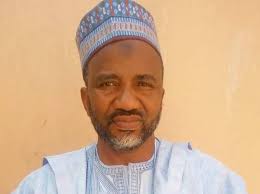While Nigerians were still digesting the first New Year message of the President Muhammadu Buhari on the mantra of next level agenda, the news of the hike in the electricity tariff surfaced like a whirlwind despite the epileptic electricity being supply for the existing tariff in every household across the country.
Based on the Nigerian Electricity Regulatory Commission (NERC’s) directive on January 4, 2020, the new tariff regime takes effect from January 1, 2020, and it is done based on changes in relevant macroeconomic variables, available generation capacity as at October 31, 2019, inflation rate, and other relevant data obtained from the Central Bank of Nigeria (CBN) and National Bureau of Statistics (NBS) which necessitated the amendment of the 2015 Multi Year Tariff Order (MYTO), apart from other self-inherent clauses backing the amendment.
Though, this appears to reflect the reality in the country but at the same time it seems the relevant data collected by the NERC from CBN and NBS fails to showcase the level of poverty and other manifestations which have subjected the electricity consumers especially, the workers to hardship in the recent time.
Probably, the NERC forgot to consider these factors before announcing the increment in the electricity Tariff in the proposed new order. In 2019, the World Poverty Clock revealed that the number of people living in an extreme poverty has jumped from 87 million it was in 2018 to 91.16 million in less than nine months.
Prior to this revelation, the NBS had in 2018, calculated the unemployment rate to 23.1 percent, while the underemployment rate to 20.1 per cent, making a total of 43.3 percent, of the population struggling to survive. This suggests that before any increment is made in the electricity tariff, they ought to be wide consultation in order to ascertain the economic strength of the consumers and best way to go about the hike which seems to be a missing link in this case.
Although, based on the explanation of the chairman/chief executive officer of the commission, Prof. James Momoh, on January 6, before the implementation of the new tariff on April 1, 2020, the commission would have carried out a nationwide consultation with the necessary stakeholders in order to determine the next line of action.
However, this seems to be like putting the cart before the horse because it is the consultation that ought to be the first step before announcement. Peradventure, this would have saved the commission from making the hike a new year package for the nation because it would have greatly revealed the reality on ground to the commission.
As at today, the reality on ground is that the rate of inflation in the country has grown astronomically and as a result affected the prices of goods and services which had in turn created a mismatch between the incomes of workers and their expenses. This has aggravating a call for a new minimum wage which still remains a serious battle between the workers and some employers in most parts of the country.
Apart from this, the existing power supply seems to be at variance with the existing electricity Tariff because the more money paid the less power supply. This has crippled so many businesses and contributed largely to the army of the unemployed people struggling to pay the existing tariff.
Though, there is nothing wrong in increasing electricity tariff because electricity requires serious maintenance to function effectively but it becomes a matter of concern when there is a great disequilibrium between the money collected and the power supplied.
This has been the major issue from the time of the Electricity Company of Nigeria to the National Electric Power Authority to Power Holding Company of Nigeria down to this era of privatisation when we now have the triumvirate of power generation, transmission and distribution companies.
In fact, despite the billions of Naira sunk into various projects in the sector the story still remains the same. This prompted President Buhari in 2018 to ask question on where lies the light despite the 16 billion dollars sunk into the sector by his predecessor? Though, no much improvement has been made since the present administration took over the mantle of power.
Adding salt to the injury is the issue of estimated billing which needs to be criminalised before any hike is done in the electricity tariff. Currently, about 70 per cent of electricity consumers are still being subjected to estimated billing which gives rooms for systemic stealing.
Up till date, there are some communities in Nigeria which cannot describe the shape of the pre-paid meter they have paid for many years ago while in some communities, it is the community association that purchased and installed transformer, poles, wires, among others, themselves.
So, rather than justifying the hike in the electricity tariff with the clauses in the 2015 MYTO, the NERC should focus on how to improve power supply and give free meter to every household in Nigeria in order to stop the day light robbery being covertly or overtly perpetuated by the bad elements within the system.
Oluwasanmi writes from Ibafo, Ogun state



